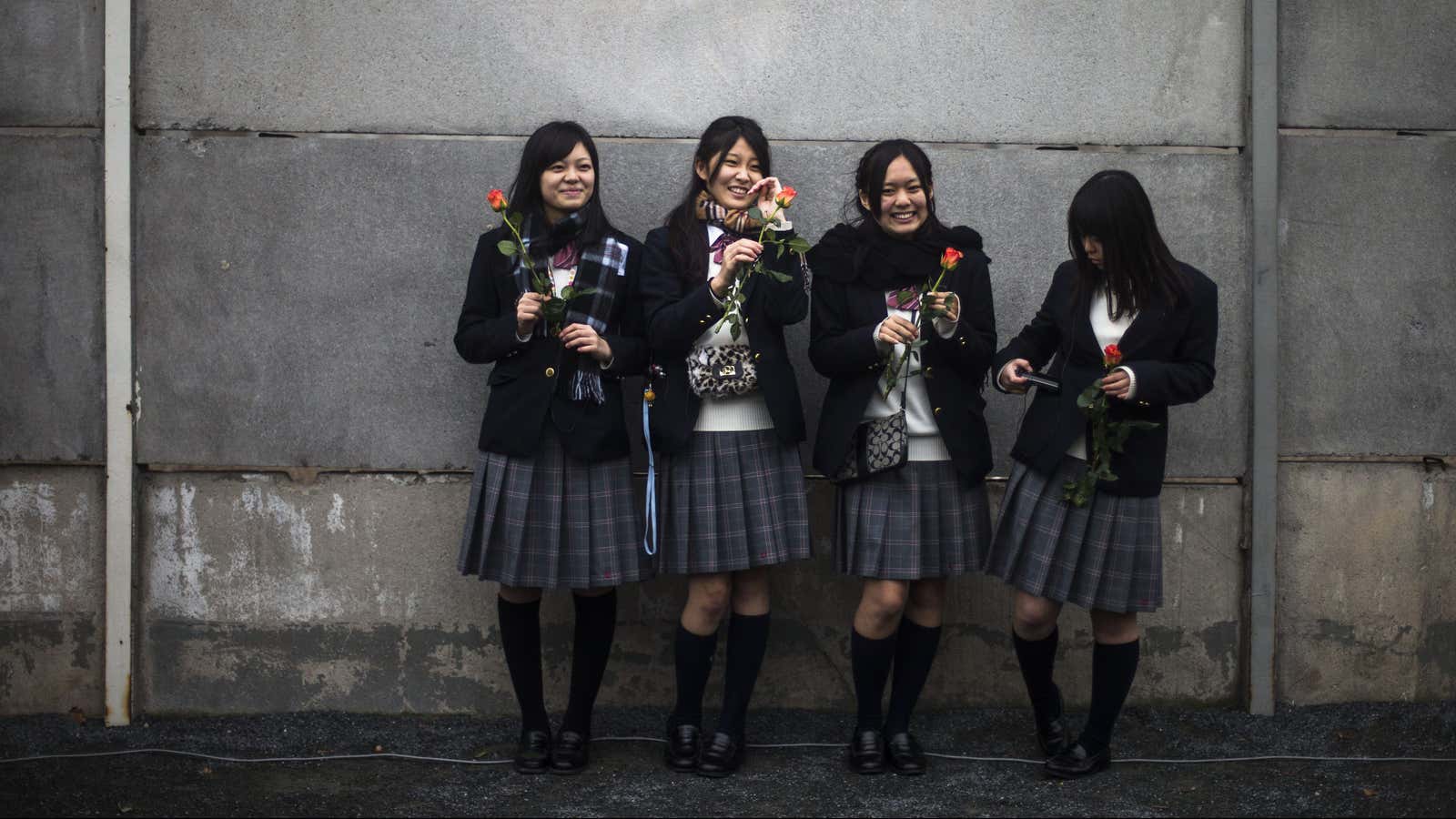Going back to school is extremely tough for a lot of Japanese students, and this can be clearly seen in the country’s suicide statistics.
In Japan, more people under the age of 18 commit suicide on Sept. 1 than any other date, according to a 2015 government white paper (link in Japanese, pdf) examining 40 years of data. The government attributed the reason to the mental pressures that students face adjusting to school life after a particularly long break. The anxiety of teens going back to school is so pervasive that there’s a Japanese term (pdf) to describe them: futoko, or “people who don’t go to school.”
Ahead of the date this year, various people and organizations in Japan have tried to reach out to students who might feel anxiety heading back to school. National broadcaster NHK, for example, mounted a campaign on Twitter called “on the night of Aug. 31.” One tweet showed Naoki Ogi, a well-known TV personality, telling teens that if they feel that school isn’t a safe environment for them, they do not have to go, and that it is important to rest and have peace of mind:
In addition, Ueno Zoo in Tokyo and a library in the seaside town of Kamakura both offered themselves as places for refuge for teenagers feeling distressed about the first day of the new semester.
The overall number of suicides has been steadily falling in Japan since 2003, but the number of youth suicides has stayed relatively stable, in part, some say, because of a widespread culture of bullying (paywall) in Japanese schools. The collective nature of Japanese classrooms, and society at large, means that bullying in schools often takes the form of a large group ganging up on someone, rather than just a few individuals, according to the Economist (paywall).
Vickie Skorji, director of TELL Lifeline, which provides counseling services in Japan, said media coverage is another factor, as young people who are already struggling and considering suicide see news stories about the times when suicides peak. “That starts to build an association with [it being] a good time to act,” she adds.
Bullying via social media, such as Line, Japan’s dominant chat app, is also on the rise, leading one organization called School Guardian (link in Japanese) to launch an app that allows students to anonymously report cyberbullying. The app, which victims can use to send screenshots as examples of bullying, was adopted this week by the education board of Kumamoto prefecture for trial in three schools.
Japan further strengthened its stance on bullying this year when it updated its anti-bullying law, which was passed in 2013, to stipulate that schools should prevent bullying of students based on their sexual orientation or gender identity. A 2016 Human Rights Watch report found that LGBT students in Japanese schools faced bullying from both students and staff.
Still, the dire situation was summed up by Tomohiro Tsubota, director of the student affairs division at the Ministry of Education, who told the Japan Times: “I don’t think the law has been functioning effectively because there are still children who are choosing to die as a result of bullying.”
